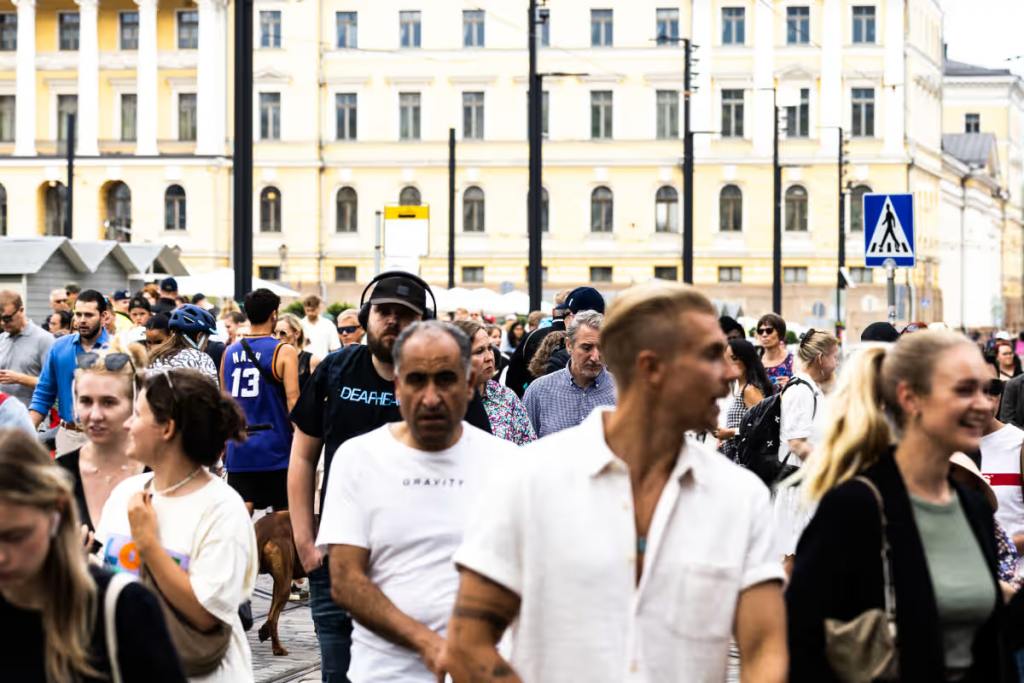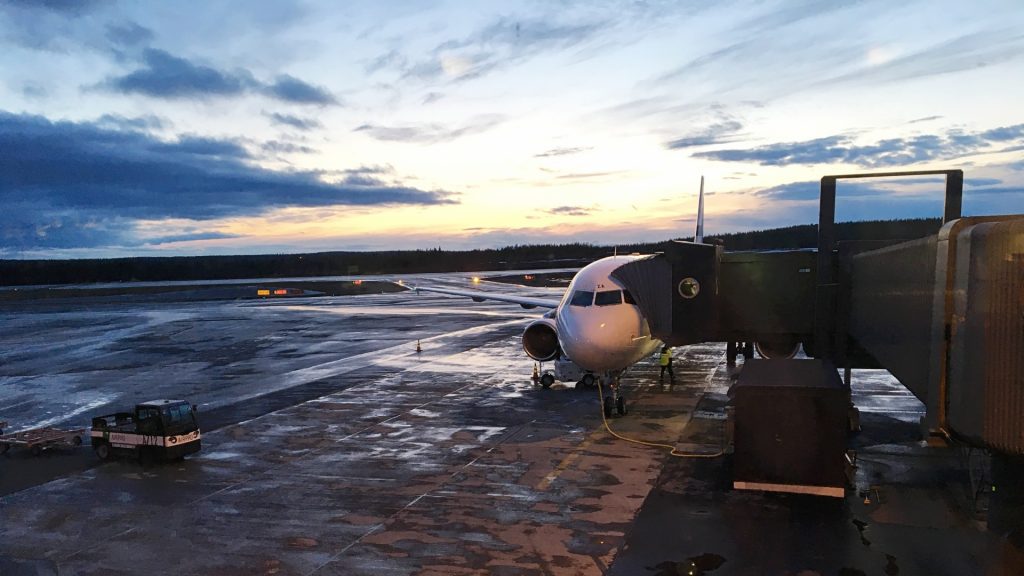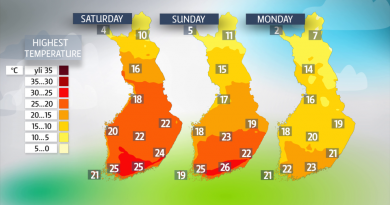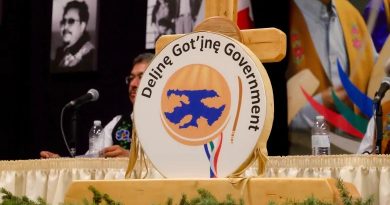Lapland exception to Finnish tourism’s current challenges

Finland is suffering from a dearth of tourists, after overnight visits from Russia and east Asia dipped by over a million.
A sleet-strewn Senate square is pretty quiet, when two American tourists arrive pushing a stroller. Soon a bus unloads a group of Japanese tourists at perhaps the most recognisable Finnish tourist spot.
April is the most difficult month for tourism businesses in Finland, and in Helsinki the travel season is yet to start. Expectations, however, are not high this year.
Visitor numbers have collapsed by about a fifth since 2019.
Travellers from Russia and Asia are thin on the ground now. The number of visitors from Russia, China and Japan is down by more than a million from 2019.
That was before the Covid pandemic and the Russian war of aggression against Ukraine, which led to a collapse in visitor numbers from Russia and more difficult journeys from east Asia.
“If we look at last year as a whole, then sure we are quite far behind 2019,” said Ari Peltoniemi, an economist at the Finnish Hospitality Association MaRa.
Trickier journeys
Russians are not admitted to Finland on tourist visas, thanks to the war. Finland stopped granting Schengen visas to Russian tourists in 2022 due to the war of aggression Russia is conducting in Ukraine.
The land border with Russia is also closed now, in an effort to stymie Russia’s attempts to use instrumentalised migration to pressure Finland.
Asian tourists’ journeys to Helsinki are now lengthier, as Finnish planes cannot use Russian air space. The Helsinki-Tokyo journey used to take just nine hours, and now it lasts 14.

It is a challenging environment for Finland’s tourism businesses. They are trying to entice people from Europe and North America, and there has been a small increase in those groups.
“Travel spending, which includes both domestic and foreign tourism, was worth some 16.3 billion euros in 2019,” said Peltoniemi. “According to Statistics Finland it was 15.3 billion euros in 2023, so it’s down about a billion euros and that’s almost all due to the decline in foreign visitors.”
Lapland doing well
The capital city region is the biggest loser in the Finnish travel industry now. It has lost around a fifth of its visitors.
“In Helsinki overnight hotel stays have been down 23 percent compared to 2019, which says something about the volume of foreign visitors who have not yet returned,” said Peltoniemi.

Lapland is the only region to have increased visitor numbers compared with pre-pandemic numbers.
“Lapland tourism has done well, and it has been the only region to have increased foreign visitor numbers last year compared with 2019,” said Peltoniemi.
Finns travelling as before
Finns have already returned to pre-pandemic patterns of travel. That means there’s a big deficit between tourist income in Finland and spending by Finns abroad.
The deficit in tourism spending — the difference between spending in Finland and spending by Finns abroad — stands at 2.9 billion euros.
“If you think that the deficit is 2.9 billion euros, then that is also a big loss in tax revenue,” said Peltoniemi. You are talking about nearly a billion euros in lost state revenue.”
Related stories from around the North:
Canada: Airlines’ new routes from N.W.T. to Ontario can capitalize on int’l tourism: expert, CBC News
Iceland: Iceland moving ahead on better ways to manage tourism & safeguard protected areas, Eye on the Arctic
Sweden: Reindeer herding affected by increased tourism in Swedish mountains, Radio Swede



